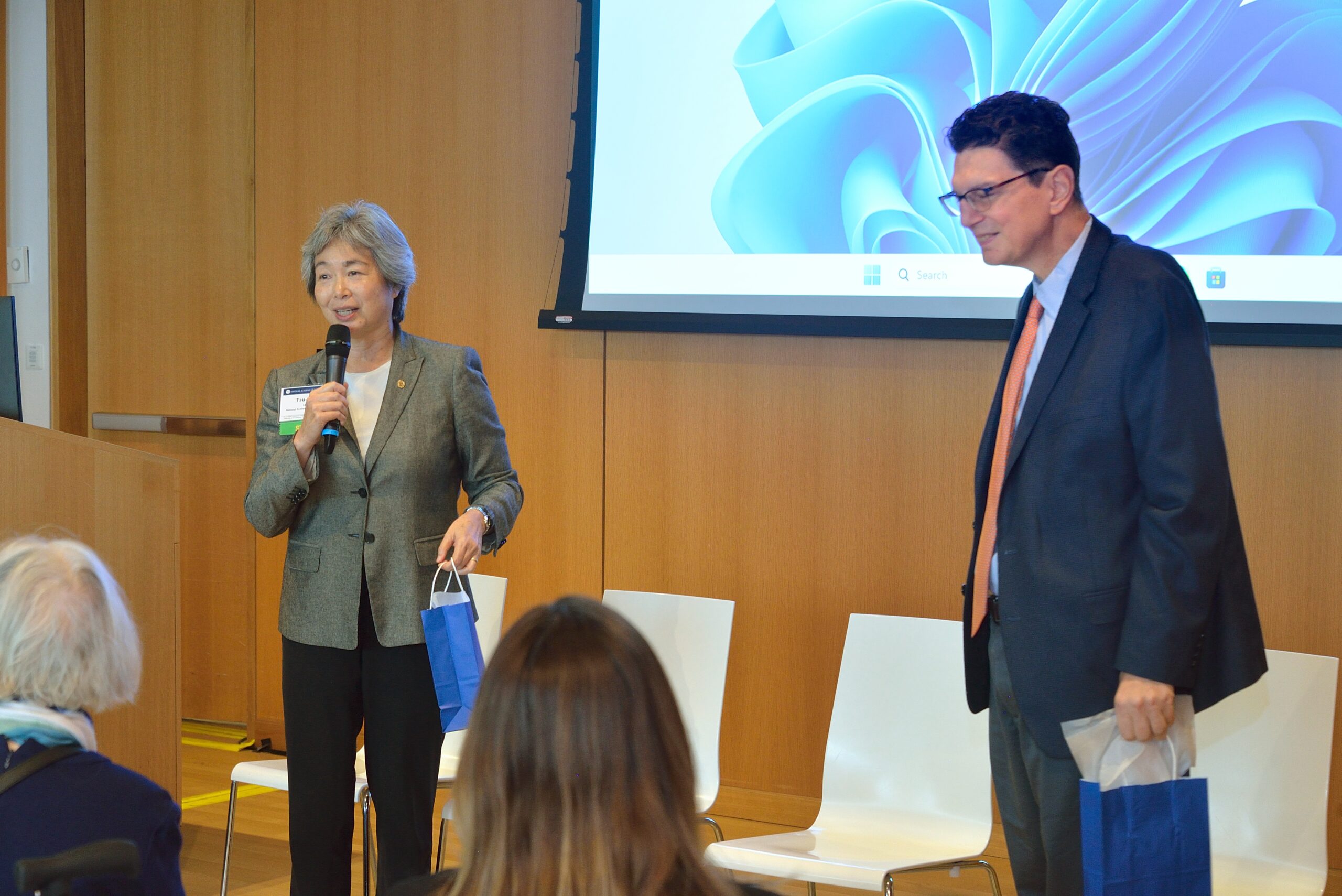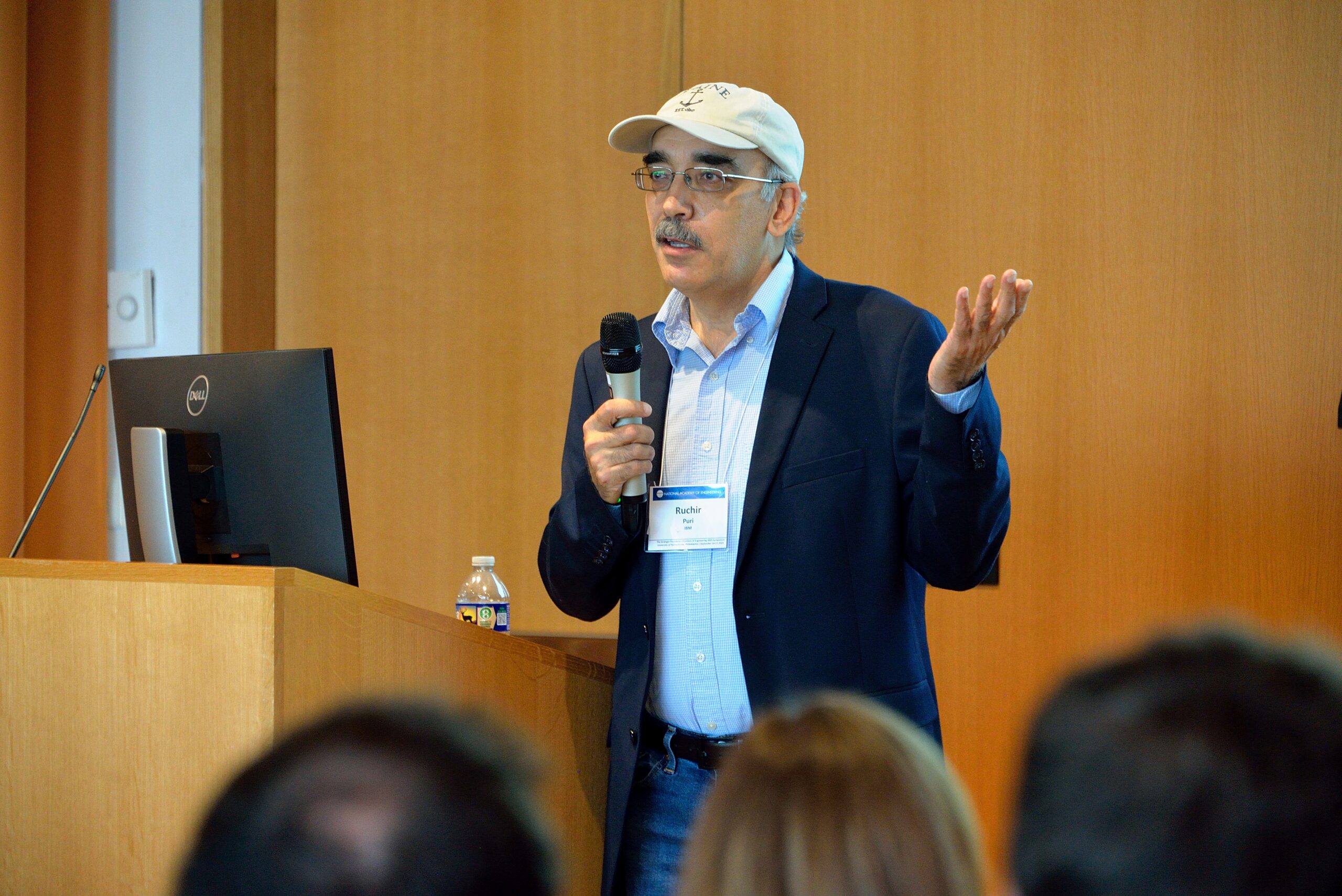
The 30th Anniversary Grainger Foundation Frontiers of Engineering Symposium (FOE), hosted by the University of Pennsylvania, took place from September 14 through 17, 2025 at the Singh Center for Nanotechnology. Marking the first time the event came to Philadelphia, this flagship National Academy of Engineering (NAE) event was co-chaired by George Pappas, UPS Foundation Professor of Transportation in Electric and Systems Engineering and Associate Dean for Research at Penn Engineering, and brought together some of the brightest minds in American engineering to share insights, spark collaborations and imagine the future.

IBM scientist Ruchir Puri opened the symposium with a striking comparison: The human brain — 1,200 cubic centimeters, running on just 20 watts, fueled by sandwiches — versus today’s GPUs, which consume 1,200 watts each, with thousands needed for real computation. The metaphor captured both the daunting challenges and exhilarating ambitions facing engineers today, and set the tone for a gathering dedicated to innovation across disciplines.

Over the three days, the FOE symposium followed that tone through cross-disciplinary talks, breakout discussions and networking sessions, complete with a bell to prompt participants to “mix up” and meet new colleagues. Sessions ranged from advances in neural engineering and new ways to interface with the brain, to quantum and next-generation electronics, AI and robotics, and sustainability challenges, all presented in accessible formats to spark dialogue beyond disciplinary boundaries.
Flavia Vitale, Associate Professor in Bioengineering at Penn Engineering and Neurology at Penn Medicine, presented her work on developing flexible, minimally invasive bioelectronic devices that interface with the nervous system, technologies with potential for treating neurological disorders. Deep Jariwala, Associate Professor and Peter and Susanne Armstrong Distinguished Scholar in Electrical and Systems Engineering, discussed next-generation materials and devices for electronics, quantum technologies and AI applications, highlighting Penn’s role at the cutting edge of emerging fields.
Attendees hailed from industry leaders including General Motors, Sandia National Labs and IBM, as well as top research universities including Penn, Georgia Tech, Vanderbilt and Caltech. The event’s participation numbers speak to FOE’s prestige.
“Out of more than 360 nominations and 320 applications, just 74 of you were selected to be here,” said Pappas. “It’s a really prestigious honor, and I congratulate you on this fantastic award.”
The honor carries weight as FOE has become a proven pipeline to NAE membership, one of the highest distinctions in the engineering profession.
Penn Vice Provost for Research and Solomon R. Pollack Professor in Bioengineering Dave Meaney invoked Benjamin Franklin as “America’s first engineer,” pointing to Penn’s engineering legacy from Franklin’s founding vision to the creation of ENIAC. With an inspiring call to action he added, “We live in uncertain times, but engineers have always found a way through. As Robert Frost wrote, ‘the best way out is always through,’ and I’d amend that to say, ‘the best way out is always through in a room full of engineers.'”

NAE President and Professor Emeritus at UC Berkeley’s Department of Electrical Engineering and Computer Sciences, Tsu-Jae King Liu, herself a FOE alum, echoed Meaney’s call and urged participants to “look for interconnections, build relationships, expand your network and discover new synergies.”
After back-to-back days of doing just that, the symposium drew to a close and Puri’s brain metaphor came full circle: FOE itself is a kind of collective mind, powered by the ingenuity of 74 rising engineers and sustained by collaboration. Like the human brain, its strength lies not in isolated parts but in connections.
The event was made possible through the support of the Grainger Foundation, which funds $30,000 seed grants for collaborations born at FOE, alongside corporate sponsors including IBM, Google, Amazon, Siemens, AstraZeneca, Lockheed Martin and Penn’s Office of the Provost.
